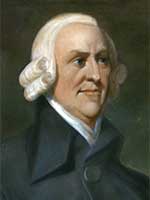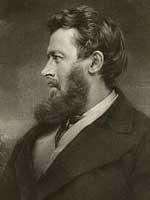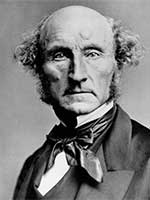
Adam Smith
Engels econoom
Leefde van: 1723 - 1790
Categorie: Economie en ondernemers Land: ![]() Verenigd Koninkrijk
Verenigd Koninkrijk
Geboren: 5 juni 1723 Gestorven: 17 juli 1790
Over Adam Smith
Adam Smith (Kirkcaldy, rond 5 juni 1723 - Edinburgh, 17 juli 1790) was een Schotse moraalfilosoof en een pionier op het gebied van de politieke economie.
Smith wordt alom genoemd als de vader van de moderne economie.
Ook wordt hij beschouwd als een van de grondleggers van het klassieke liberalisme. Hij was van mening dat het nastreven van het eigen individuele belang ook in het grootste maatschappelijk belang zou resulteren.
Zijn belangrijkste werk, An Inquiry into the Nature and Causes of the Wealth of Nations (een onderzoek naar de aard en oorzaken van de rijkdom der naties; meestal kortweg aangeduid als The Wealth of Nations - 1776), droeg hij op aan de Amsterdamse bankier Henry Hope. In The Wealth of Nations legde Smith de basis voor het economisch liberalisme, dat snel en gemakkelijk ingang vond in de net onafhankelijk verklaarde Verenigde Staten en in het Verenigd Koninkrijk, door de economische crisis die veroorzaakt werd door de Amerikaanse Onafhankelijkheidsoorlog. Uiteindelijk zou deze publicatie de doodsteek betekenen voor het mercantilisme, dat eeuwen de economie in Europa beheerste.
Bron Wikipedia
Boeken van Adam Smith
Citaten 1 t/m 10 van 19.
-
Het is niet vanwege de goedheid van de slager, de brouwer of de bakker dat wij ons eten verwachten, maar vanwege hun eigenbelang.
Origineel:It is not from the benevolence of the butcher, the brewer, or the baker that we expect our dinner, but from their regard to their own interest.
Wealth of Nations (1776) Bk.1, ch.2― Adam Smith -
Er is geen kunst die een regering sneller van een andere leert, dan die van het geld kloppen uit de zakken van het volk.
Origineel:There is no art which one government sooner learns of another than that of draining money from the pockets of the people.
Wealth of nations (1776) Appendix― Adam Smith -
Een mens laat zich slechts door eigenbelang leiden, hij wordt door een onzichtbare hand geleid iets na te streven dat buiten zijn bedoelingen ligt.
Origineel:He intends only his own gain, and he is in this, as in many other cases, led by an invisible hand to promote an end which was no part of his intention
Wealth of Nations (1776) Bk. IV, ch.2― Adam Smith -
Geen enkele maatschappij kan gezond en gelukkig zijn, waarvan het grootste deel van de leden arm en ellendig is.
Origineel:No society can surely be flourishing and happy, of which the far greater part of the members are poor and miserable.
Wealth of Nations (1776) Bk.1, ch. VIII― Adam Smith -
Ze worden geleid door een onzichtbare hand om de noodzakelijke levensbehoeften op bijna dezelfde wijze te verdelen, als wanneer de aarde verdeeld was in gelijke porties tussen al haar bewoners. En dus, zonder het te willen en te weten, bevorderen ze het maatschappelijk belang.
Origineel:They are led by an invisible hand to make nearly the same distribution of the necessaries of life, which would have been made, had the earth been divided into equal portions among all its inhabitants, and thus without intending it, without knowing it, advance the interest of the society, and afford means to the multiplication of the species.
The Theory of Moral Sentiments (1759) Part IV - The effect of Utility― Adam Smith -
Arbeid is daarom de werkelijke maatstaf voor de handelswaarde van alle goederen.
Origineel:Labour, therefore, is the real measure of the exchangeable value of all commodities.
Wealth of Nations (1776) Bk 1, ch 5― Adam Smith -
De wetenschap is het grote tegengif tegen het vergif van dweperij en bijgeloof.
Origineel:Science is the great antidote to the poison of enthusiasm and superstition.
Wealth of Nations (1776) Bk V, Ch.1― Adam Smith -
Barmhartigheid jegens de schuldige is wreedheid jegens de onschuldigen.
Origineel:Mercy to the guilty is cruelty to the innocent.
The Theory of Moral Sentiments (1759) Part 2, Sect. II, ch. III― Adam Smith -
Consumptie is het enige doel van alle productie.
Origineel:Consumption is the sole end and purpose of all production.
Wealth of Nations (1776) Bk 4, ch 9― Adam Smith -
De jaarlijkse arbeid van elke natie is het fonds dat haar oorspronkelijk voorziet van alle levensbehoeften en gemakken die het jaarlijks verbruikt.
Origineel:The annual labour of every nation is the fund which originally supplies it with all the necessaries and conveniences of life which it annually consumes.
Wealth of Nations (1776) Introduction― Adam Smith










 Walter Bagehot
Walter Bagehot John Stuart Mill
John Stuart Mill R. H. Tawney
R. H. Tawney